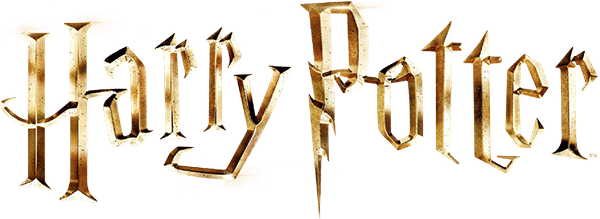The Slug Club saw many a talented student pass through its exclusive doors. For those lucky few, membership had its perks: specially prepared dinners, invite-only parties, meeting famous people. So, given the Slug Club also managed to foster an environment of exclusivity in a school which – at least by Harry’s time – Dumbledore had made so open-minded, was it ever worth it?
In wizarding terms, Slughorn’s favourites were a mixed bunch…
For a head of Slytherin, Slughorn was not exactly a pure-blood obsessive. His favourites spanned all four houses and, over the years, included Muggle-borns Lily Evans, Dirk Cresswell and Hermione, a number of students with half-blood parentage and Ginny, criticised by fellow Slug Club member Blaise Zabini for being ‘a filthy little blood traitor’.
That’s not to say Slughorn was completely without prejudice – he was shocked to discover Lily wasn’t a pure-blood – but in general he didn’t embrace the attitude of his house’s founder, Salazar Slytherin, whose aversion to teaching Muggle-borns was so great it led to his resignation from the school. Given that blood prejudice was still firmly established among certain wizarding families – especially for Lily and Dirk, at Hogwarts around the time of Voldemort’s rise – it seems likely that the free acknowledgement of talented Muggle-borns by someone like Slughorn, member of the so-called ‘Sacred Twenty-Eight’, would have been a welcome change. And after the mistakes he made with Tom Riddle, Slughorn chose not to invite any students with Death Eater connections, leaving Malfoy on the outside for once.

…But the Slug Club also sowed seeds of division
Slughorn was not averse to imposing hierarchies. Okay, he might not have chosen his favourites based on their blood status, but he certainly chose some of them based on their parents. Status, wealth, fame, power: that’s what Slughorn admired, and if it meant nurturing the children of those he saw as superior, he wasn’t bothered about their talent. Blaise, Marcus Belby, Cormac McLaggen and Neville were all invited to Slughorn’s first gathering during his second stint at Hogwarts not because of their talents, but because of their relatives. Meanwhile, the Muggle-borns and ‘blood-traitors’ Slughorn collected were chosen because of skills they’d displayed. Already, they had more to prove.
And there were others he didn’t consider at all. He ignored Malfoy and repeatedly got Ron’s name wrong, despite having invited Ron’s sister and two of his best friends to join the Slug Club. Ron could be jealous at the best of times so his response to Slughorn was, on balance, pretty calm, but Slughorn’s fixation on students who would bring him reflected glory must have caused resentment.

The Slug Club forged connections and careers…
The exclusivity of the Slug Club did Honeydukes founder Ambrosius Flume no harm, seeing as Slughorn’s introduction to Ciceron Harkiss landed Flume his first job. And for all Slughorn liked to go on about Holyhead Harpies captain Gwenog Jones, he did deliver on that score, bringing Gwenog in to meet his new Slug Club picks.
Slughorn also had an uncanny ability to pick out talent. As well as Ambrosius and Gwenog, there was Dirk (who became Head of the Goblin Liaison Office), Daily Prophet Editor Barnabas Cuffe, Hermione – of course – and Harry’s mother Lily, whose gift for Potions made her one of Slughorn’s absolute favourites. Slughorn might have nurtured these students because he hoped to reap his rewards, but the support of a well-connected teacher definitely had benefits for those lucky enough to secure it.

But Slughorn got some things terribly wrong
Slughorn’s own gift for talent-spotting let him down on occasion. Pure-blood obsessive Blaise and the aggressively arrogant Cormac were prime examples of Slughorn’s blindness towards well-connected people. Talent didn’t matter in those instances, because although gifted students might be worth cultivating sometimes, those with existing privilege were sure bets.
And of course, he got it disastrously wrong with Riddle, the student who would become Voldemort. Overcome by Riddle’s talent and glamorous charm, Slughorn refused to acknowledge his dark side, ignoring his own nervousness to instruct him on Horcruxes. The fact that he was remorseful later doesn’t change the fact that his desire to please a talented student helped Voldemort form his plans. And, as his attitude to Blaise and Cormac showed, Slughorn never quite lost his willingness to remain blind to the faults of the potentially powerful.

And the Slug Club prioritised power over everything else
It could be said that the Slug Club reflected the wider world, but by his actions Slughorn taught his students to value power and status. He wasn’t Voldemort, but Slughorn had no qualms about imposing hierarchies, potentially creating rifts between friends and even families with his desire to ‘collect’ people. And in a way, wasn’t that also Voldemort’s ambition?
The Slug Club might have seemed fairly harmless – a few parties, some unofficial career planning – but it represented the slimy, slippery slope that helped prepare the way for Voldemort’s rise.



